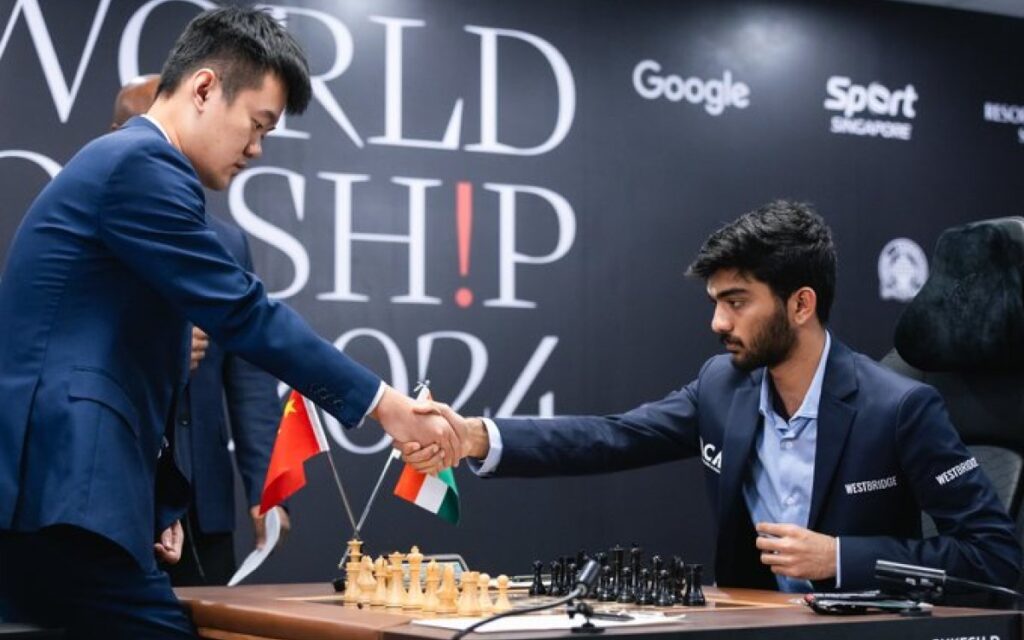FIDE World Chess Championship: For the second game in a row, India’s D. Gukesh failed to capitalise on a big advantage and landed in an inferior position as Game 8 ended in a draw with reigning champion Ding Liren of China defending stoutly and brilliantly to turn things around in another edge-of-the-seat roller-coaster in Singapore.Gukesh had a big advantage in position and time and the Chinese player looked on his way to defeat, just in Game 7 on Tuesday, came up with a risky plan and grabbed the advantage. He offered a draw by repetition of moves despite having a slight advantage but the 18-year-old Indian courageously rejected the offer. The game eventually ended in a draw after more than four-and-half hours thrilling action that lasted 51 moves.
Both players are still tied 4-4 after eight games. Gukesh will continue to feel frustrated as he could not convert a promising position into a win for the second successive game. This is the fifth successive draw in the 14-game match in which the first three games produced two wins.
It was Gukesh all the way at the start of the game.
Ding opted for the English Opening and the Indian challenger played the first few moves at breakneck speed and also uncorked a novelty (by moving his pawn to f6 square) on the seventh turn. He continued to blitz his moves and soon he had a 30 minutes time advantage over the reigning champion.
He kept Ding Liren from following his prepared system and played brilliantly to add to his opponent’s woes, who spent more and more time for each move and soon the Indian GM had double the time than Ding. The Chinese player made a positional mistake by moving his rook to b1, which made his pieces a bit more unstable.
Soon, the 32-year-old Chinese was down to 16 minutes for 16 moves to complete 40 moves before the first time control. He had to rush with his moves and made another bad move as his position worsened.
However, Gukesh lost a bit of his advantage with an inaccurate move that gave Ding some breathing space. But the Chinese played brilliantly, went for a gamble, opted for a sacrifice and unleashed a king move which forced Gukesh to make another inaccurate move and the Indian player’s advantage fizzled out and his position became unstable.
The Indian made three weak moves in succession from 26 to 28 turns that swung the pendulum in the other direction and Gukesh was in a disadvantageous position. He landed with a deadly double pin on his knight and rook and had less than 10 minutes to make 10 moves. Ding continued to build on his position and had the advantage as Gukesh continued to fight with his back to the wall. However, it was not simple for Ding as Gukesh had two connected pawns on a and b file, which were potential threats.
The two players made the time control in the nick of time. Though Ding was an exchange up, he offered a chance to draw by repetition of moves. However, Gukesh ignored it and decided to continue the game despite having imbalanced material and his opponent having a slight advantage.
The Indian made three weak moves in succession from 26 to 28 turns that swung the pendulum in the other direction and Gukesh was in a disadvantageous position. He landed with a deadly double pin on his knight and rook and had less than 10 minutes to make 10 moves. Ding continued to build on his position and had the advantage as Gukesh continued to fight with his back to the wall. However, it was not simple for Ding as Gukesh had two connected pawns on a and b file, which were potential threats.
Article Source: IANS


